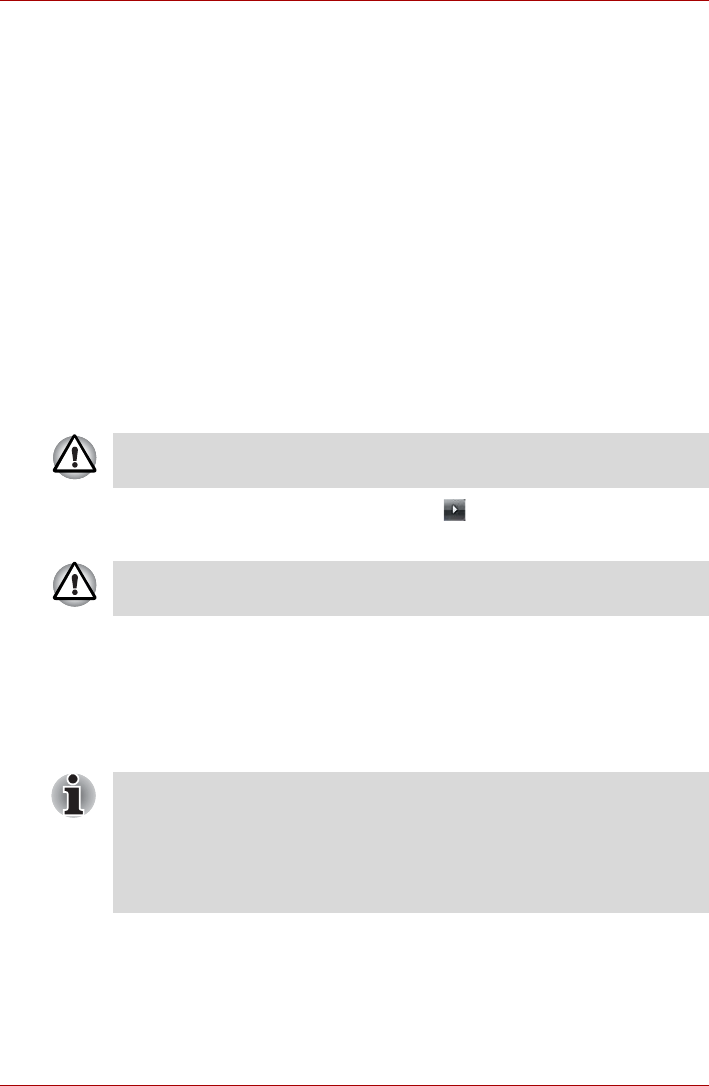
User’s Manual 3-4
Getting Started
Starting up for the first time
When you first turn on the power, the computer’s initial screen is the
Microsoft
®
Windows Vista™ Startup Screen Logo.
Follow the on-screen directions.
Turning off the power
The power can be turned off in one of three modes:shut down (Boot) ,
hibernation mode or sleep mode.
Shut down mode (Boot mode)
When you turn off the power in shut down mode, no data is saved and the
computer will boot to the operating system’s main screen.
1. If you have entered data, save it to the hard disk or to a diskette.
2. Make sure all disk(disc) activities are terminated, then remove any
CD/DVDs or diskette.
3. Click Windows Start button, point to , and then select Shut Down.
4. Turn off the power to any peripheral devices.
Hibernation mode
The hibernation feature saves the contents of memory to the hard disk
when the computer is turned off. The next time the computer is turned on,
the previous state is restored. The hibernation feature does not save the
status of peripheral devices.
Benefits of
hibernation
mode
The hibernation feature provides the following benefits:
■ Saves data to the hard disk when the computer automatically shuts
down because of a low battery.
Make sure the disk’s indicator is off. If you turn off the power while a
disk(disc) is being accessed, you can lose data or damage the disk(disc).
Do not turn the computer or devices back on immediately. Wait a moment
to let all capacitors fully discharge.
■ While entering hibernation mode, the computer saves the contents of
memory to the HDD. Data will be lost if you remove the battery or
disconnect the AC adaptor before the save is completed. Wait for the
Disk indicator to go out.
■ Do not install or remove a memory module while the computer is in
hibernation mode. Data will be lost.


















